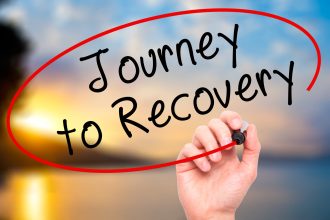Addiction is a multifaceted and demanding condition that impacts millions of individuals globally, influencing their physical health, mental state, and overall quality of life. While traditional face-to-face counselling has long been the standard approach for treating addiction, the rise of online counselling methods has opened up new possibilities for reaching and supporting individuals struggling with addiction.
This article will explore some of the best online addiction counselling methods and how they can provide effective support and treatment for those seeking recovery.
1. Teletherapy and Video Counseling
Teletherapy, also known as telehealth or telecounseling, involves providing counselling services remotely through telecommunications technology such as video conferencing platforms. Video counselling allows individuals to connect with licensed therapists and counselors from the comfort and privacy of their own homes, eliminating the need for travel and reducing barriers to access.
Video counselling sessions can be conducted in real-time, providing the same level of support and interaction as traditional face-to-face counselling sessions while offering greater flexibility and convenience for clients.
2. Text-Based Counselling
Text-based counselling, also known as online chat counselling or messaging therapy, involves communicating with a counsellor or therapist via text messages, emails, or secure messaging platforms.
Text-based counselling offers a discreet and convenient way for individuals to receive support and guidance without the need for face-to-face interaction. This method is particularly well-suited for individuals who may feel more comfortable expressing themselves in writing or who have busy schedules that make it difficult to attend traditional counselling sessions.
Text-based counselling can also provide a valuable supplement to other forms of therapy, offering ongoing support and encouragement between scheduled sessions.
3. Phone Counselling and Hotlines
Phone counselling, also known as telephone therapy or telephonic counselling, involves speaking with a counsellor or therapist over the phone. Phone counselling sessions can provide immediate support and intervention for individuals in crisis or distress, offering a confidential and anonymous outlet for discussing concerns, receiving guidance, and accessing resources.
Many addiction hotlines and helplines offer free, confidential support to individuals struggling with addiction, providing a lifeline for those in need of immediate assistance or emotional support.
4. Online Support Groups and Forums
Online support groups and forums provide a supportive and non-judgmental environment for individuals struggling with addiction to connect with others who are facing similar challenges.
These virtual communities offer a platform for sharing experiences, providing mutual support, and accessing resources and information related to addiction recovery. Online support groups and forums may be moderated by trained professionals or peer facilitators and can offer valuable insights, encouragement, and accountability for individuals on their recovery journey.
5. Mobile Apps and Digital Tools
Mobile apps and digital tools designed for addiction recovery offer a convenient and accessible way for individuals to track their progress, access educational resources, and receive support and encouragement on-the-go.
These apps may include features such as daily affirmations, goal-setting tools, progress trackers, and peer support networks, empowering individuals to take an active role in their recovery process. Some apps also offer mindfulness exercises, coping strategies, and relaxation techniques to help individuals manage cravings, stress, and triggers more effectively.
6. Virtual Reality Therapy
Virtual reality (VR) therapy is an innovative approach to addiction treatment that uses immersive virtual environments to simulate real-life situations and triggers in a safe and controlled setting.
VR therapy can be particularly effective for individuals struggling with substance use disorders or behavioral addictions by providing a realistic and interactive platform for practicing coping skills, relapse prevention strategies, and exposure therapy techniques. Virtual reality therapy can help individuals develop greater self-awareness, self-control, and resilience in the face of addiction-related triggers and cravings.
7. Online Education and Self-Help Resources
Online education and self-help resources provide individuals with valuable information, tools, and strategies for understanding and managing addiction. These resources may include educational websites, self-help books, podcasts, webinars, and online courses covering topics such as addiction science, recovery principles, coping skills, and relapse prevention.
Online education and self-help resources can empower individuals to take proactive steps towards recovery, develop healthier coping mechanisms, and build a strong support network of peers and professionals.
Harnessing the Power of Online Counseling for Addiction Recovery
Online counselling methods offer a variety of effective and accessible options for individuals seeking support and treatment for addiction. Whether through teletherapy, text-based counselling, phone counselling, online support groups, mobile apps, virtual reality therapy, or online education and self-help resources, individuals struggling with addiction can access the help and guidance they need to achieve lasting recovery.
By harnessing the power of technology and innovation, online counselling methods are transforming the landscape of addiction treatment, making support and resources more readily available to those in need, regardless of geographical location or personal circumstances.















